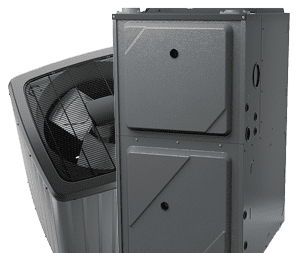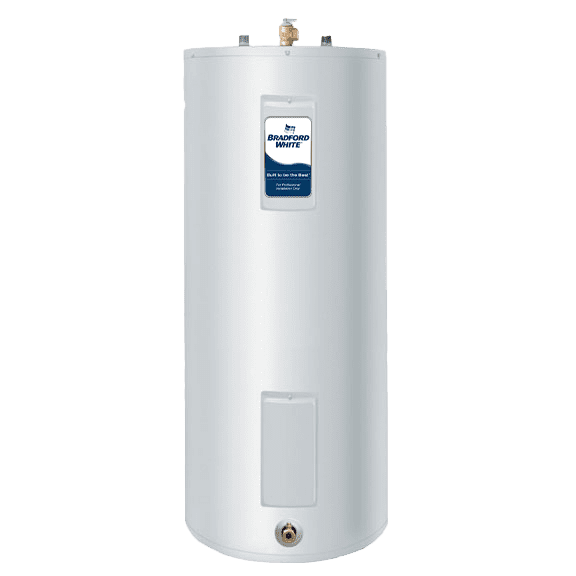Tankless vs. Traditional Hot Water Heaters

Tankless Vs. Traditional Hot Water Heaters
Pros, Cons, & Important Notes About Each
For most families, water heaters are an essential piece of equipment – especially for those of us who live in cold regions. These amazing appliances give us the ability to wash our dishes and clothes easily and keep our bodies clean and healthy with warm showers and cozy baths. In many parts of Canada, you would be very hard-pressed to go without one of these fantastic machines.
Your water heater provides comfort, health, safety, and more – so don’t you want to be sure you have the right one to suit your needs? Home appliances aren’t cheap, and require regular maintenance to work efficiently. Settling for the wrong water heater could result in high energy bills and an unreliable hot water supply, and put your family’s safety at risk. So how do you know you’ve got the right water heater for your home?
What to Consider
Here are some things to think about before you begin your hunt for a new water heater. Once you nail down your needs, it will be much easier to decide whether you should go with a tankless or traditional model.
Usage Patterns
For larger households, hot water needs will be much higher and much more variable compared to homes with fewer residents. If you live alone and do not frequently host large groups of guests, your hot water needs are likely modest.
Beyond how much hot water is needed, the predictability of usage should also be considered. Is a lot of hot water required on a predictable schedule? Or do your family’s schedules vary wildly? Do you travel a lot, frequently leaving your home empty? It’s a good idea to note the answers to these types of questions to help you get a handle on what your home needs.
Size & Installation
Many homes have been built to suit traditional water heaters, so they have the space and infrastructure necessary to accommodate the large tanks. But if you are opting for a tankless model, you may be able to reclaim some of that space, as these units typically have a smaller footprint than their tank-style counterparts.
If you are considering getting a point-of-use water heater, you want to be sure that the area in which you are installing it can support the unit.
Save yourself time and trouble by taking measurements and photos of the area where you plan to install your new system. This is the best way to ensure you don’t end up with a unit that’s too big for your space.
Budget & Timelines
Determine what your budget is in both the short and long term before you start shopping around for a new unit. Are you looking to save monthly on energy bills, or would you prefer to save money in the short term by choosing a more affordable unit?
Tankless water heaters are generally more fuel-efficient than their traditional counterparts, but cost more to install upfront. This is particularly true if you are switching from a traditional water system. Tankless units also require more maintenance than traditional units.
Traditional water heaters usually have higher energy consumption but lower upfront installation fees. Generally, their lifespan is half that of a tankless unit, although they don’t require as much maintenance.
Further, take into consideration whether government rebates are something you want to be able to take advantage of.
Water Heaters: A Brief History
Humans have been heating water for millennia. Before the industrial revolution, a fire was the primary method: people used metal vessels to retain and transfer the heat of a hearth or stove into the water it contained.
In the late 1800s, patents for new technology in water heating began to surface. With a few false starts, eventually, the ability to both heat and store water with a single appliance became widespread.
As innovations continued, the first tankless water heater was invented in 1929. If you thought that tankless heaters were a newfangled fad, you’re not wrong when you consider the technology used in contemporary models – but technically, tankless models have been around for nearly a century.
With the above in mind, don’t rely on hype to shape your decision when purchasing a new water heater. Both tankless and traditional water heaters have come a long way, and determining which model is “better” simply comes down to which one is best suited to meet your needs. While tankless water heaters are growing in popularity, traditional models have held their ground for a good reason. Let’s explore below.
Tankless Water Heaters
These models are defined by their ability to heat water on demand. They are excellent for buildings and homes with a large number of occupants, or whose residents require hot water frequently throughout the day.
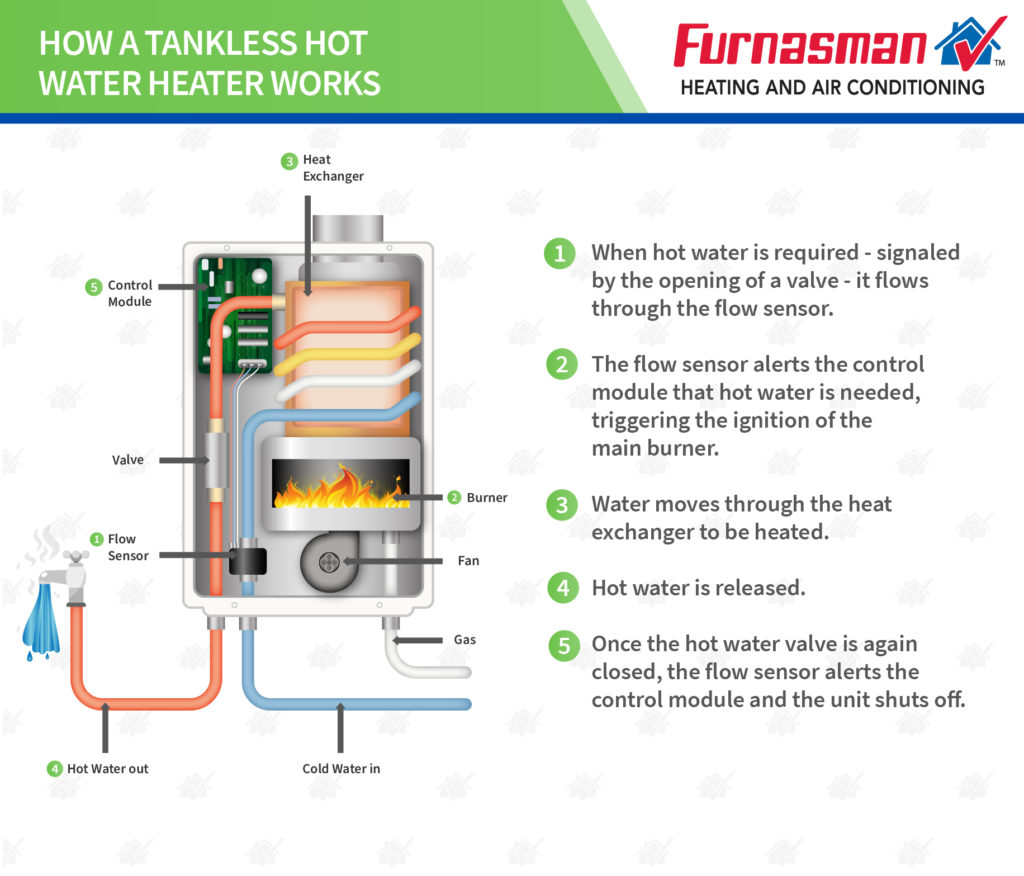
Pros
- Get your money’s worth. Because tankless heaters only heat water on demand (instead of heating and storing water), you only pay for the energy you actually need.
- A longer lifespan. Most tankless models have a working lifespan that’s twice as long as their traditional counterparts.
- Water when you want it. You won’t need to worry about anyone using up all the hot water before you have a chance to shower since there’s no tank to refill.
Cons
- More maintenance. Tankless heaters aren’t quite as forgiving when it comes to skimping on maintenance. You need to have most models flushed at least once a year to keep them running at peak efficiency.
- Higher up-front costs. While these units will save you more in energy consumption, they do cost more to install – especially if you are making the switch from a traditional unit since your system will need to be retrofitted.
- Lower threshold for hot water distribution. While you don’t need to worry about draining the tank, if too many people need hot water at the same time, the system may not be able to keep up, resulting in lukewarm water for everyone.
Traditional Water Heaters
As mentioned earlier in the article, the first successful storage-tank water heater was patented by Edwin Ruud in 1890. His work eventually allowed him to open his own water heater engineering and manufacturing company, which is still in business today.
Traditional water heaters utilize a large storage tank to supply hot water to a home or building. Many homes were initially built with this style of water heater, which means it can be costly to switch to a tankless model despite the potential long-term economic savings. Traditional water heaters are generally a better option for spaces with a small number of occupants or where hot water usage follows a consistent schedule.
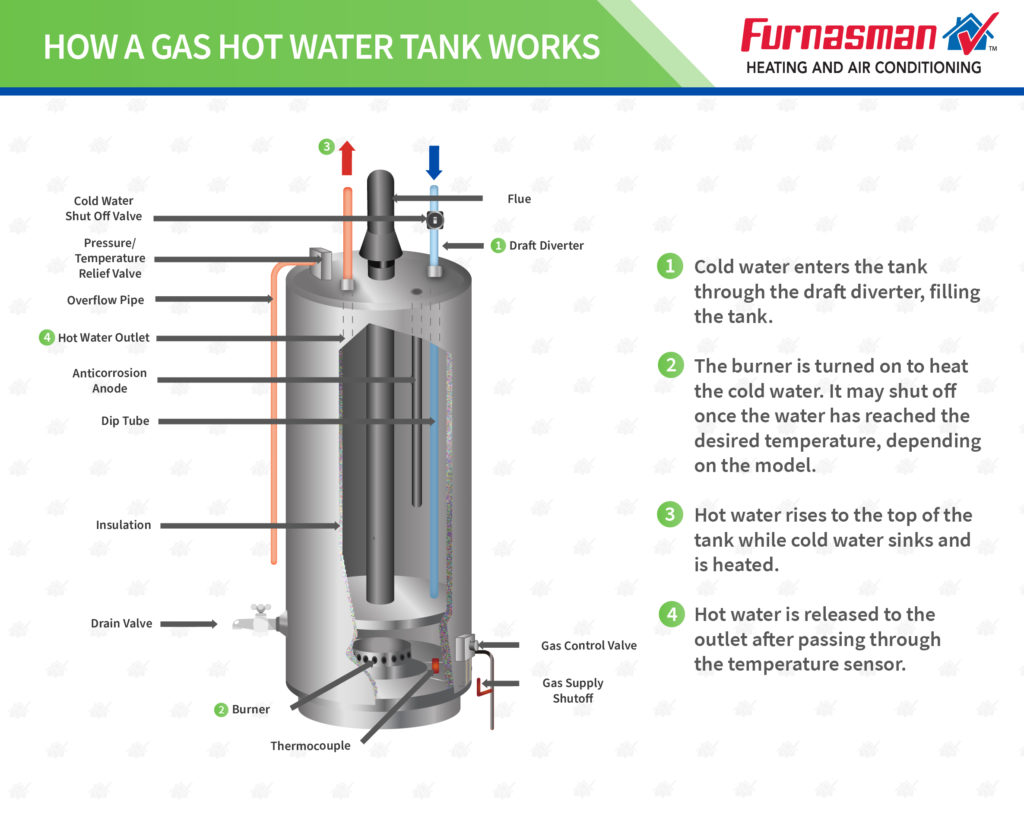
Pros
- Lower up-front installation costs. Generally speaking, water heaters with tanks cost less to install than their newer cousins. This is especially true if you already had a traditional unit to begin with, which means you can avoid retrofitting costs.
- More forgiving when it comes to maintenance. Traditional units with tanks – even newer models – are a bit more forgiving if you forget to book your yearly maintenance appointment.
- Better for short term residents. If you’re not planning on staying in your current home for the long run, a traditional water heater will cost you less to install and less to maintain than a tankless unit would.
Cons
- Higher energy bills. Because these units are constantly heating water to a high temperature regardless of whether it’s being used, they consume significantly more energy than the tankless models.
- Shorter lifespan. Traditional units typically need to be replaced after 7 to 15 years, whereas tankless water heaters can last 20 to 30 years.
- Space. A water heater with a water storage tank takes up much more space than the tankless units.
The Combo: Exploring Point-of-Use
There’s a reason, so many people wonder which model is best – it can be challenging to choose when both types have a fair number of benefits and drawbacks! However, there is a happy medium in adding another type of water heater to the mix: the point-of-use model.
POU water heaters, as their name implies, are installed at the point where hot water is needed, such as a sink, shower, or tub. They can be beneficial for systems, such as washing machines or hot tubs, that could otherwise put too much strain on your water heater.
Whether you have a traditional water heater or a tankless water heater, a POU could be the perfect addition to help you meet your hot water needs. For example, consider a home where the shower frequently runs, demanding the lion’s share of the hot water and often draining the water heater’s tank. Adding a point-of-use heater to supplement the shower would allow for unlimited hot water supply to the shower without disruption to the rest of the home.
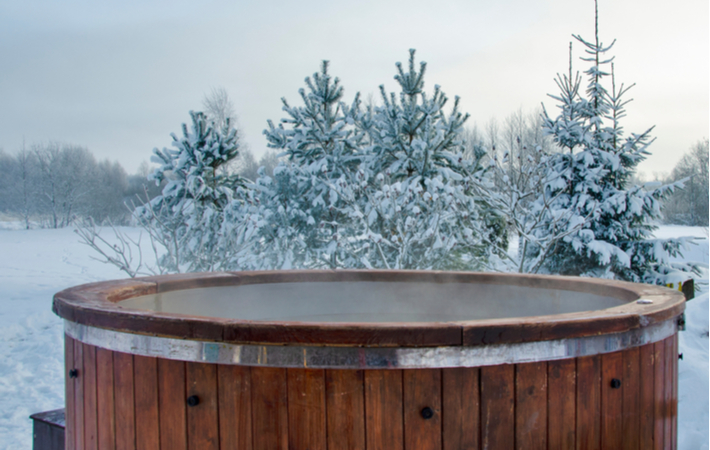
So, Who Wins?
Well, in the case of traditional vs. tankless water heaters, there is no clear winner – except you! Making an educated decision on which type(s) of water heaters will best serve your home is a sure shot at success. If you’re ready to start the process, Furnasman is always happy to help.
